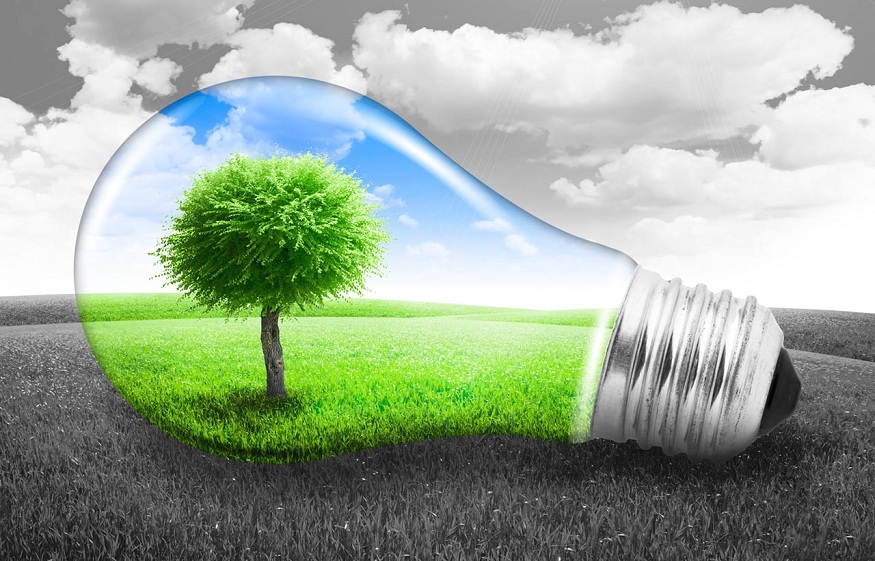Introduction
In today’s rapidly evolving world, energy efficiency is no longer just an option; it’s a necessity. This is especially true for commercial spaces in India, where energy consumption is on the rise. Embracing electrical energy-efficient solutions not only helps reduce operational costs but also contributes to environmental sustainability. So, what are these solutions, and how can they be effectively implemented in Indian commercial spaces?
Understanding Electrical Energy Efficiency
Energy efficiency refers to using less energy to perform the same task or produce the same result. It’s all about optimizing energy use to achieve greater output with fewer resources. For commercial spaces, this means reducing energy waste and improving operational efficiency, which translates to lower energy bills and a smaller carbon footprint.
Energy Consumption in Indian Commercial Spaces
The current scenario in India shows a significant energy consumption pattern in commercial buildings, driven by factors such as increasing urbanization and industrial activities. However, the challenge lies in managing this consumption efficiently. High energy costs and the environmental impact of excessive energy use are major concerns for businesses.
Types of Electrical Energy-Efficient Solutions
- Lighting Solutions
- LED Lighting: LED lights consume less power and have a longer lifespan compared to traditional lighting. They also emit less heat, reducing the load on air conditioning systems.
- Smart Lighting Systems: These systems use sensors and automation to adjust lighting based on occupancy and natural light availability, further reducing energy consumption.
- HVAC Systems
- Energy-Efficient HVAC Units: Modern HVAC systems are designed to consume less energy while maintaining optimal temperature and air quality.
- Smart Thermostats: These devices allow for precise control of heating and cooling, ensuring that energy is not wasted in unoccupied spaces.
- Renewable Energy Integration
- Solar Power: Installing solar panels can significantly reduce reliance on grid electricity. Solar energy is abundant in India and can be a cost-effective solution in the long run.
- Wind Energy: For commercial spaces with sufficient space, wind turbines can be an excellent addition to the energy mix, providing a steady supply of renewable energy.
Energy-Efficient Lighting Solutions
Benefits of LED Lighting LED lighting offers numerous benefits, including lower energy consumption, reduced maintenance costs, and enhanced lighting quality. Transitioning to LED lighting can result in substantial savings on electricity bills and contribute to a more sustainable environment.
Implementing Smart Lighting Systems Smart lighting systems utilize sensors and advanced controls to optimize lighting usage. By adjusting the intensity and duration of lighting based on occupancy and daylight availability, these systems minimize energy wastage and enhance the comfort of occupants.
Optimizing HVAC Systems
Choosing Energy-Efficient HVAC Units Selecting HVAC units with high energy efficiency ratings can lead to significant energy savings. These units are designed to operate efficiently even under varying load conditions, reducing overall energy consumption.
Advantages of Smart Thermostats Smart thermostats offer precise control over HVAC systems, enabling businesses to maintain ideal indoor temperatures without wasting energy. These devices can be programmed to adjust settings automatically based on occupancy schedules, further enhancing efficiency.
Integrating Renewable Energy
Solar Power Systems Solar power systems harness the abundant sunlight available in India to generate electricity. Installing solar panels on rooftops or other available spaces can provide a reliable and sustainable energy source, reducing dependence on traditional power sources.
Wind Energy Solutions Wind energy can be harnessed through small-scale wind turbines, especially in areas with consistent wind patterns. This renewable energy source can complement solar power, providing a balanced energy mix for commercial spaces.
Smart Building Management Systems
Overview of Smart Building Technologies Smart building technologies integrate various systems within a building to improve efficiency and performance. These technologies include advanced sensors, automated controls, and real-time monitoring tools.
Benefits and Implementation Implementing smart building management systems can lead to significant energy savings by optimizing the operation of lighting, HVAC, and other systems. These systems provide real-time data and analytics, enabling businesses to make informed decisions about energy usage.
Energy Audits and Monitoring
Importance of Regular Energy Audits Regular energy audits help identify areas where energy is being wasted and opportunities for improvement. Conducting these audits periodically ensures that businesses remain aware of their energy consumption patterns and can take corrective actions as needed.
Utilizing Energy Monitoring Tools Energy monitoring tools provide real-time insights into energy usage, allowing businesses to track consumption and identify inefficiencies. By leveraging these tools, companies can implement targeted strategies to reduce energy waste.
Government Initiatives and Policies
Overview of Government Programs The Indian government has launched several initiatives and policies to promote energy efficiency in commercial spaces. These programs offer incentives, subsidies, and technical support to businesses adopting energy-efficient solutions.
How Businesses Can Benefit By participating in government programs, businesses can reduce the financial burden of implementing energy-efficient technologies. Additionally, these programs provide access to valuable resources and expertise, facilitating a smoother transition to energy-efficient operations.
Case Studies of Energy-Efficient Commercial Spaces
Successful Implementations Several commercial spaces in India have successfully implemented energy-efficient solutions, resulting in significant energy savings and improved operational efficiency. These case studies highlight the practical benefits and potential of adopting such solutions.
Lessons Learned Analyzing successful implementations provides valuable insights into the challenges and best practices associated with energy efficiency. Businesses can learn from these experiences to enhance their own energy efficiency initiatives.
Challenges in Adopting Energy-Efficient Solutions
Financial Constraints One of the primary challenges businesses face is the initial investment required for energy-efficient technologies. However, the long-term savings and benefits often outweigh the upfront costs.
Technical Challenges Implementing energy-efficient solutions may require technical expertise and modifications to existing infrastructure. Overcoming these challenges involves thorough planning and collaboration with experienced professionals.
Future Trends in Energy Efficiency
Emerging Technologies The field of energy efficiency is constantly evolving, with new technologies emerging to enhance performance and reduce costs. Innovations such as advanced energy storage systems and smart grids are poised to revolutionize the energy landscape.
Predictions for the Future As awareness of energy efficiency grows, more businesses are expected to adopt energy-efficient solutions. This trend will drive further advancements in technology and make energy-efficient options more accessible and affordable.
Practical Tips for Businesses
Simple Steps to Improve Energy Efficiency
- Switch to LED lighting
- Implement smart lighting and HVAC systems
- Conduct regular energy audits
Long-term Strategies
- Invest in renewable energy sources
- Upgrade to energy-efficient appliances and equipment
- Train employees on energy-saving practices
Conclusion
Energy efficiency is crucial for the sustainability and profitability of commercial spaces in India. By adopting electrical energy-efficient solutions, businesses can significantly reduce their energy consumption, lower costs, and contribute to a greener future. The journey towards energy efficiency requires commitment, but the long-term benefits make it a worthwhile investment.
FAQs
- What are the best energy-efficient solutions for small businesses? Small businesses can benefit from LED lighting, smart thermostats, and regular energy audits to identify and address inefficiencies.
- How can I calculate the potential savings from energy-efficient solutions? Utilize energy monitoring tools and conduct energy audits to estimate savings. Many tools also provide calculators to project potential cost reductions.

